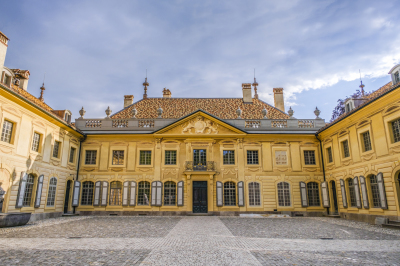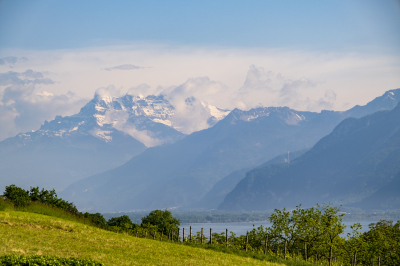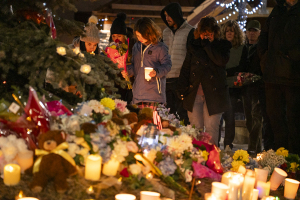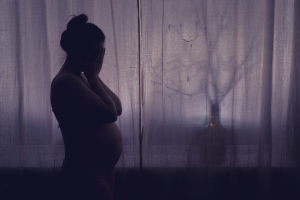Christian universities should expand their global footprint

In a few days, Pepperdine University — along with thousands of other institutions of higher learning — will open the new academic year. Pepperdine will welcome 10,000 undergraduate and graduate students as they pursue their academic dreams. Nearly a hundred of those students will move into the Château d’Hauteville, marking the inaugural semester for our new campus in Switzerland.
For over 60 years, we have made bold, strategic investments in international learning opportunities. Our newest campus at the Château d’Hauteville demonstrates our enduring conviction that study abroad programs deliver transformative educational experiences. With 80% of our undergraduate students opting to study abroad while at Pepperdine — I’d say they agree.
Christian universities might consider making similar investments in international opportunities for students, and here’s why.
First, students are exposed to God’s beautifully diverse creation where they gain a fresh global perspective. As a resident of Malibu who has an appreciation for our world-renowned view of the Pacific Ocean, I can tell you our new Château d’Hauteville campus, which overlooks Lake Geneva and the Alps, is nestled in one of the most beautiful places on earth. With its French-style gardens, stone-carved fountains, and surrounding woodland forests, the château will provide an optimal environment for students and guests to experience the peaceful surroundings, reflect on their academic studies, and derive inspiration that will forever change their lives.
Integral to the transformative experience abroad is our students’ exposure to beauty. Beauty inspires. Beauty calls a student to inquire, to reflect, and ultimately to grapple with issues of truth and goodness. Beauty is a catalyst, propelling students’ ability to think outside of the familiar, and abstractly and creatively to confront the challenge of expanding their knowledge. As world-renowned novelist Fyodor Dostoyevsky once observed, “Beauty will save the world.” Our modern society often forgets how important beauty is to a satisfied soul. It is vital that Christians, who love the Creator of our souls, remember that all beauty is ultimately a reflection of God, and thus plays an essential role not only in our growing closer with Him, but in charting the various vocations He has for our lives.
Students’ education will be enriched by the diversity of cultures, languages, and perspectives. At the château, students will take courses on the French language, world civilization, earth science, Christianity and culture, plants and environment, sociology, foreign policy, and dispute resolution. Global leaders are formed by engaging people with perspectives from around the globe.

Study abroad environments curate adventure. While living at the château, students have the opportunity to visit nearby communities and cities in the region, including Geneva, Paris, Florence, and Munich. They will truly live at the crossroads of Europe. Physically being near, seeing, and interacting with places where so much innovation and history have taken place supplies a remarkably tangible education that unlocks and illuminates concepts in ways professors and textbooks simply cannot. Students will also sharpen their expertise as they engage with industry leaders in one of the world’s most important centers of diplomacy and business.
International study locations provide a platform for engaging in a diversity of thought. The château is an unparalleled venue for convening conversations of global significance. Switzerland is famous for its neutrality and often plays the role of mediator and host of parties on different sides of various issues and conflicts. In a similar vein, Pepperdine will use the campus to host diverse groups with myriad interests and viewpoints to help address some of the world’s biggest challenges.
The château will host two conferences this fall — one in collaboration with the Heritage Foundation and the Danube Institute (and featuring two former heads of state) to discuss European defense and cyber security, and another coordinated by Pepperdine’s top-ranked Straus Institute for Dispute Resolution. The first event will focus on a topic relevant to the Russia-Ukraine war.
The idea that the past is prologue is firmly impressed upon students in international settings. In our renovations, great care and attention have been paid to preserving the legacy and character of the historic château, while upgrading the infrastructure to create modern living accommodations for students, faculty, and campus visitors. Most of the estate has been restored to its original condition – the exceptions being limited to the students' academic, residential, accessibility, and dining needs.
And much credit is due to the architect of the project, who restored the historic site while creating a first-class university campus. Nicolas Delachaux, from Glatz and Delachaux, is quite simply, the best of the best. “The guiding motivation of the project was maintaining a balance between history and modernity,” said Delachaux. “Everything we have done here is for the preservation of the monument and the benefit of the students.”
And perhaps most importantly, study abroad locations like our campus in Switzerland allow our students to understand their faith in the context of something much deeper — the global church. Students who grew up in modern megachurches now find themselves in the land of a thousand cathedrals. Merely an hour away from the château, Geneva is steeped in Reformation history. Not much farther away is nearly every location of import that has literally shaped the form, function, and flavor of Christianity for centuries.
Study abroad programs have buttressed the lives of so many of our students. Imagine the impact Christian colleges and universities would have on future doctors and lawyers, businesspeople and nonprofit professionals, mothers and fathers, and pastors and politicians as we increase international study opportunities for our students.
The enthusiasm of our friends and donors about the new campus demonstrates that there is great interest in expanding the international reach of Christian universities in order to provide the rising generation with transformative experiences that will shape the leaders of tomorrow.
More than ever, the world needs globally-minded, servant leaders. Now is the time for unprecedented investments in a generation of students whose potential far exceeds our wildest dreams for unity, peace, and leadership.
Jim Gash is president of Pepperdine University.



























